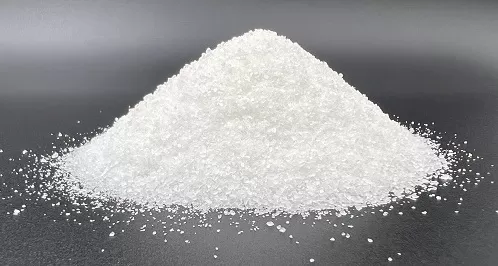
Polyvinyl Alcohol (PVA) is a synthetic, water-soluble polymer widely used across various industries due to its exceptional chemical, physical, and functional properties. Known for its versatility, biocompatibility, and eco-friendliness, PVA has earned a unique position in applications ranging from adhesives and coatings to pharmaceuticals and packaging.
This article provides an in-depth look at PVA’s properties, methods of synthesis, applications, and environmental considerations, highlighting its significance in modern industrial and commercial practices.
What is Polyvinyl Alcohol (PVA)?
pva polyvinyl alcohol (PVA) is a synthetic polymer obtained by the hydrolysis or alcoholysis of polyvinyl acetate (PVAc). Unlike many synthetic polymers, PVA is not synthesized directly from its monomer, vinyl alcohol, due to its instability. Instead, it is produced by first polymerizing vinyl acetate into polyvinyl acetate, followed by hydrolyzing the acetate groups into hydroxyl groups.
This process yields a water-soluble polymer with varying degrees of hydrolysis and polymerization, which influence the material’s solubility, viscosity, and physical properties. The wide adjustability of these characteristics makes PVA suitable for a broad range of applications.
Key Properties of PVA
PVA is renowned for its distinctive properties that make it valuable in various industrial and scientific domains:
- Water Solubility
One of PVA’s defining features is its solubility in water, which can be customized based on the degree of hydrolysis and the temperature of the water. Fully hydrolyzed PVA is less soluble at room temperature but dissolves in hot water, while partially hydrolyzed PVA dissolves more readily in cold water. - Film-Forming Capability
PVA produces clear, strong, and flexible films with excellent tensile strength. These films also exhibit good barrier properties against gases such as oxygen, making PVA suitable for packaging applications. - Adhesive Qualities
PVA is an excellent adhesive, providing strong bonds to materials like paper, wood, and textiles. - Chemical Resistance
PVA is resistant to oils, fats, and many organic solvents, although it is susceptible to degradation in the presence of strong acids or alkalis. - Biodegradability
PVA is partially biodegradable under specific conditions, which contributes to its reputation as an eco-friendly material. - Non-Toxicity
Being biocompatible and non-toxic, PVA is safe for use in food packaging, pharmaceuticals, and personal care products. - Thermal Stability
PVA is stable under moderate heat but begins to decompose at high temperatures, limiting its application in high-temperature environments.
Methods of Production
The production of PVA involves the following steps:
- Polymerization of Vinyl Acetate
Vinyl acetate monomers undergo polymerization to form polyvinyl acetate (PVAc). - Hydrolysis or Alcoholysis
PVAc is treated with an alcohol (typically methanol or ethanol) in the presence of an alkaline or acidic catalyst to hydrolyze the acetate groups. This process determines the degree of hydrolysis, which significantly impacts the polymer’s properties. - Drying and Milling
The hydrolyzed polymer is then dried and processed into granular, powder, or pellet forms, depending on the intended use.
Applications of PVA
The unique combination of properties offered by PVA has led to its widespread use across multiple industries:
- Adhesives and Sealants
PVA is a key ingredient in white glue, wood adhesives, and other adhesive formulations due to its strong bonding capabilities and water solubility. - Textile Industry
PVA is extensively used as a sizing agent to strengthen yarns and improve their performance during weaving. The water-soluble nature of PVA ensures easy removal after the weaving process. - Paper and Packaging
PVA films are used in food packaging for their barrier properties against oxygen and oil. Additionally, PVA serves as a binder in paper coatings to enhance strength and printability. - Pharmaceuticals
In the pharmaceutical industry, PVA is used to produce water-soluble films for drug delivery, such as orally dissolvable strips. Its biocompatibility makes it suitable for use in capsule coatings and other drug formulations. - Construction Materials
PVA acts as a binder in cement and mortar, improving their mechanical properties and water resistance. It is also used as a polymer additive in paints and coatings. - Cosmetics and Personal Care
PVA is a common ingredient in face masks, peel-off cosmetics, and other personal care products due to its film-forming ability and non-toxic nature. - 3D Printing
PVA has found applications as a support material in 3D printing. Its water solubility allows for easy removal of supports after printing, making it ideal for complex designs. - Agriculture
PVA films are used in seed coatings, pesticide packaging, and controlled-release fertilizers, providing environmental benefits through reduced waste and improved efficiency.
Environmental Impact
PVA is often regarded as an eco-friendly polymer, primarily due to its partial biodegradability and water solubility. In controlled environments, such as wastewater treatment plants, PVA can be broken down by microorganisms. However, its biodegradation in natural environments is slower, requiring specific conditions.
The use of PVA in applications like water-soluble packaging and biodegradable films highlights its potential as a sustainable material. Nevertheless, researchers continue to explore ways to enhance its environmental performance, including developing more efficient recycling methods and improving biodegradability.
Advantages of PVA
The widespread adoption of PVA can be attributed to the following benefits:
- Versatility
PVA’s properties can be tailored for diverse applications, from adhesives to medical products. - Eco-Friendliness
Its partial biodegradability and water solubility make PVA a more sustainable alternative to conventional synthetic polymers. - Safety
PVA is non-toxic and safe for use in applications that involve direct contact with humans, such as pharmaceuticals and cosmetics. - Cost-Effectiveness
PVA is widely available and relatively inexpensive, making it an attractive option for manufacturers.
Conclusion
Polyvinyl Alcohol (PVA) is a remarkable polymer with a unique combination of properties that make it indispensable in a variety of industries. From adhesives and textiles to pharmaceuticals and packaging, PVA’s versatility, safety, and eco-friendliness ensure its continued relevance in a world increasingly focused on sustainable and innovative solutions. As research continues to enhance its applications and environmental impact, PVA is poised to play an even greater role in shaping the future of materials science and industrial manufacturing.





Leave a Reply